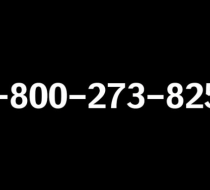LOGIC'S '1-800-273-8255' OFFERS AN HONEST TAKE ON SUICIDE & AMERICAN YOUTH 1 Favorite
Logic, a rapper known to incorporate meaningful messages with his music, recently released his newest track, “1-800-273-8255.” Covering topics of depression and suicide, the song and its subsequent music video uses the phone number of a national suicide hotline as its title. Logic, along with featured artists Alessia Cara and Khalid, sing and rap about the struggles of a person dealing with depression, both from the perspective of that person and of someone reaching out to help them.
“I don’t wanna be alive / I don’t wanna be alive / I just wanna die today / I just wanna die” sings Logic.
The song's lyrics, released on Logic’s album “Everybody,” are, according to the artist, purposefully morbid and straightforward. Logic has stated that because of the meaningful and serious theme of the song, he felt the need to be authentic and not to make things appear differently than they are in real life.
Similar to the song, the music video carries a weight and candor rarely seen in the entertainment world. The seven minute long story takes the viewer into the life of a gay teenager, played by Coy Stewart, and shows the struggles he faces in school and at home.
Without giving away too much of the plot, the boy’s father (Don Cheadle) does not approve of his sexuality, and thus kicks him out of the house. This begins a downward spiral in the boy’s life, reaching a climactic point when he is shown in an emotional scene contemplating suicide.
The visual representation of the raw lyrics is enthralling and agonizing; it is both heartwarming and tearjerking. Its ups and downs leave the viewer stunned, with quite possibly a tear or two in their eye. It’s an impressive tour de force that is well worth the seven minutes it takes to watch.
Not only is the music video emotionally appealing, but it also voices an important message. The nuances of the music video unfortunately reflect the realities of life for many LGBT teenagers today. According to a 2012 study on homeless youths by The Williams Institute of UCLA, 40% of the homeless children studied identified as LGBT, a shockingly disproportionate statistic when compared to the larger population.
One theme explored in the lyrics of the song and shown visually in the video is that of feeling left alone, and eventually coming to the realization that there are people there who care about you and who want to help you.
When the boy becomes suicidal, he eventually calls for help—presumably to a suicide hotline. The video sets out to convey the message that help is available, that there is light and hope for those struggling with depression, and that things can get better.
Logic set out to make an inspirational song which had the power to truly help people, and it would appear that his music has already made an impact. The National Suicide Prevention Lifeline has reported 33% more calls in 2017 than were made in 2016, and received a 50% increase in calls the day after Logic’s emotional performance of the song at the VMAs.
“This was like, ‘I have to take my time. I have to be patient because once again, the song can potentially save people’s lives,'” commented Logic about the making of the song he refers to as “1-800.”
It is clear that this song and its music video were made with the hopes of being an inspiration and an outlet of expression for those going through struggles like the boy in the video or the voice behind the lyrics. The topics and themes of the song are real issues, and need to have a bigger platform for discussion. And through this music video, it seems as though Logic has provided just that.
OCTOBER 4, 2017 BY PATRICK CARPENTER






